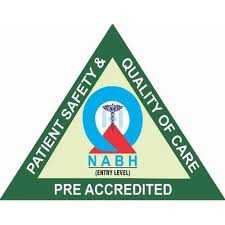Introduction:
Cataract surgery is a remarkable medical advancement that has transformed the lives of millions by restoring clear vision and enhancing overall quality of life. However, the journey to optimal vision doesn’t end with the surgery itself. Post-operative care plays a pivotal role in ensuring a successful and comfortable recovery. In this comprehensive guide, we will walk you through the essential steps and practices to take care of your eyes after cataract surgery.
Understanding Cataract Surgery:
Before delving into post-operative care, it’s essential to understand the basics of cataract surgery. During the procedure, a cloudy lens affected by cataracts is replaced with a clear artificial lens called an intraocular lens (IOL). This outpatient surgery is generally safe and effective, but proper aftercare is crucial for a speedy and complication-free recovery.
Immediate Post-Operative Care:
- Rest and Recovery: After cataract surgery, it’s normal to feel a bit groggy due to the effects of anesthesia. Ensure you have someone to accompany you home and rest for the remainder of the day.
- Eye Shielding: Your surgeon may provide an eye shield to protect your eye during sleep. Wearing it can prevent accidental rubbing or pressure on the operated eye.
- Avoid Rubbing: Refrain from rubbing or touching your eye, as this can increase the risk of infection or dislodging the IOL.
- Use Prescribed Medications: Follow your doctor’s instructions regarding eye drops or medications. These are crucial for preventing infection and reducing inflammation.
- Follow-up Appointments: Attend all scheduled follow-up appointments to monitor your healing progress and address any concerns.
Daily Care and Hygiene:
- Washing Hands: Always wash your hands thoroughly before touching your eyes, especially when applying eye drops.
- Eye Drop Administration: Administer prescribed eye drops exactly as directed. Tilt your head back, create a small pocket by pulling down your lower eyelid, and instill the prescribed number of drops.
- Avoid Water Exposure: For the first week or as advised by your doctor, avoid getting water directly into your eyes, especially while showering or washing your hair.
- Sunglasses: Wear sunglasses with UV protection when outdoors to shield your eyes from bright sunlight and prevent irritation.
Activities and Restrictions:
- Physical Activities: While walking and light activities are generally safe, avoid strenuous activities, heavy lifting, and exercises that might strain your eyes for the initial weeks.
- Avoid Dust and Wind: Protect your eyes from dust, wind, and pollutants, especially during the early stages of healing.
- Driving Restrictions: Consult your doctor before resuming driving, as your vision may initially be blurred or affected.
- Makeup and Cosmetics: Avoid using eye makeup or cosmetics for a few weeks after surgery to prevent any potential irritation.
Signs of Concern:
While cataract surgery is generally safe, it’s important to be aware of potential complications. In case you encounter any of the following symptoms, promptly get in touch with your doctor:
- Sudden vision loss
- Severe eye pain
- Elevated redness or an increase in eye discharge
- Flashes of light or new floaters
- Distorted or wavy vision
Conclusion:
Cataract surgery is a transformative procedure that can significantly improve your quality of life. By adhering to proper post-operative care, you can ensure a smooth recovery and the best possible outcome. Remember, each individual’s healing process is unique, so it’s essential to follow your surgeon’s instructions and attend all follow-up appointments. With proper care, you’ll soon be enjoying clearer and more vibrant vision, ready to embrace the world with renewed clarity and confidence.
Call Now at 0120-2481481, 2480480 +91 88003 13134 or email us at info@visionplus.net.in.
Book an Online Appointment: https://visionplus.net.in/contact/

